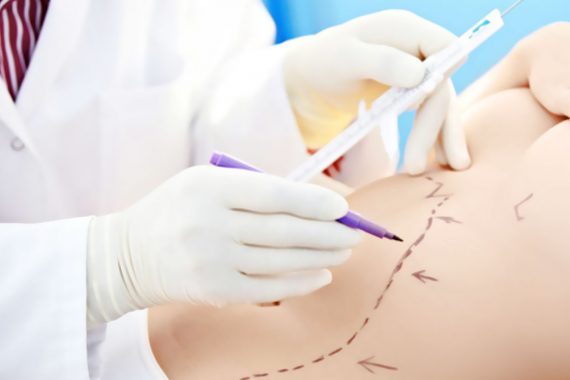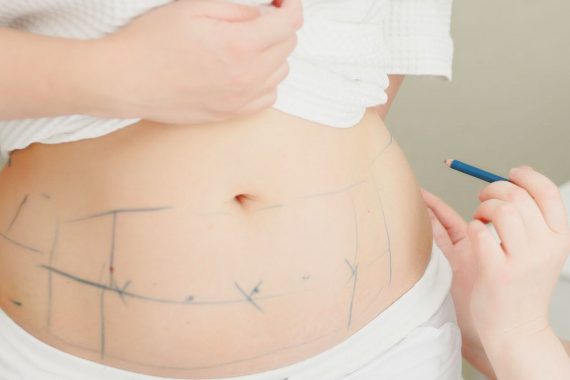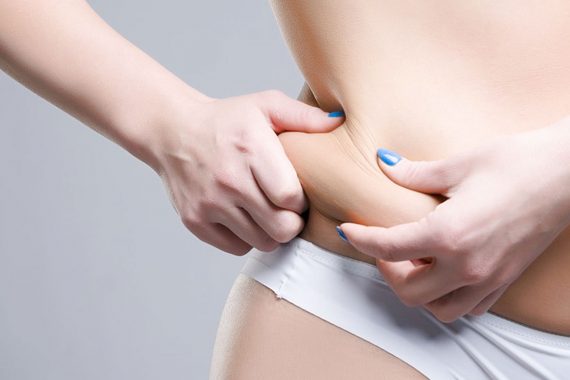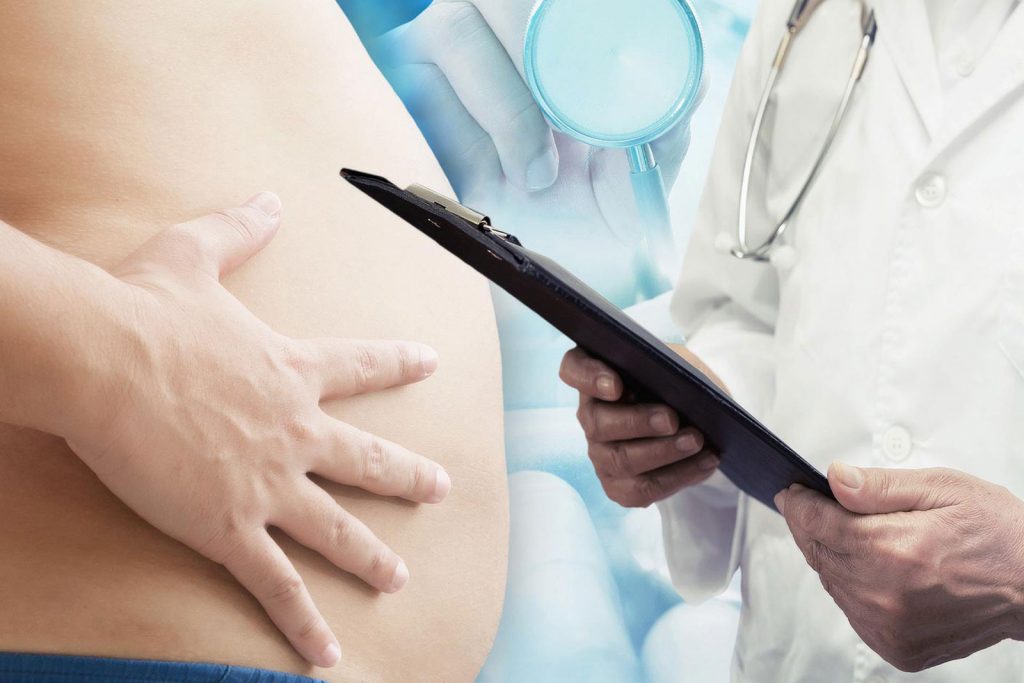Liposuction

Liposuction Treatment
Some people can not get rid of their body fat with exercise or diet. At this point, liposuction treatment comes to the forefront. In addition, plastic surgeons conduct other plastic surgery operations like facelift with liposuction.
Even though liposuction makes you loss weight, it is not an operation done to loss weight. The main objective of liposuction is to suck extra fat and reshape that part of the body.
To be a good candidate, you must be healthy because liposuction is a risky surgical procedure. In addition to this, you must have an ideal weight as well as flexible skin.
People with heart disease, blood circulation disorders, adult-onset diabetes mellitus should not have liposuction.
If you have decided to have liposuction, we provide free consultation. Please contact our patient consultants and surgeons to evaluate your situation and learn more about details, procedure, technique, and risks.

What Areas Does The Procedure Treat?
Surgeons mostly perform liposuction in areas where fat accumulates majorly. It is usually the abdominal wall, including the hips, the lower limbs, the back, but also the arms and chin. Area selection is always upon personal consultation with a plastic surgeon.
How Does Liposuction Take Place?
The main principle of liposuction is fat deposits suction. Our doctors perform the procedure in general or local anesthesia. Scars after the surgery are small; usually 5 – 10 mm long. Firstly, the surgeon injects a tumescence solution through the cannula and then suctions the fat from the area. After the liposuction, he closes the surgical wounds by the dissolvable sutures, so the patient does not need to come back for the stitches removal.

Preparation for Liposuction Treatment
- Patients should stop taking blood thinners like aspirin 2 weeks before liposuction. However, do not quit your permanent drugs without asking your health expert.
- Patients should stop smoking a month before liposuction.
- As with every surgical operation, patients should not eat or drink 7 hours before.
- Be ready at the hospital with your comfortable clothes and without make-up one hour before your operation.
- Surgeons mark and take photos of the area to compare later.
- Doctors may give you a tranquilizer when you settle in your room at the hospital before liposuction.
Surgery and early postoperative period
Liposuction treatment surgery and post-surgical stage
- After the operation, you can go back home, but you will need someone to drive you home. However, you may stay for one day at the hospital if your surgeon thinks that is necessary.
- To compare later, your doctor takes photos of the part to be reshaped before and after the surgery.
- Whereas surgeons perform minor operations under local anesthesia, they generally conduct liposuction under general anesthesia.
- There are various ways for liposuction, but surgeons mostly use a tube to suck extra fat.
- The most common liposuction technique is tumescent, which is less painful and the skin bleeds less. During the procedure, plastic surgeons inject epinephrine, lidocaine and sterile saline solution into the part of the body which has excessive fat.
- On the other hand, to dissolve the extra fat, surgeons can prefer laser liposuction and suck the extra dissolved fat with a cannula.
What else
- There will be swelling and bruises around the suctioned area, which is a common side effect of liposuction. Nevertheless, you do not need to worry because they recover in a few weeks.
- After liposuction treatment, your surgeon will provide you with some painkillers and antibiotics as a preventative measure for any inflammation.
- To preserve the new contour of your body, you will wear a corset. However, your healthcare expert will give you bandages related to the region.
- Your surgeon will tell you whether to stay a night at the hospital or go home.
- After your liposuction procedure, you will need a rest at home, and you should not do hard exercises or daily activities, although you can return to your simple daily routine.
- It is essential to follow your doctor’s instructions meticulously to get the best result from your operation.
- You should not miss any post-surgical meetings.
- If you experience any abnormal side effects or complications, such as high fever and redness around the operated area, immediately contact your surgeon.
Why is Liposuction treatment done?
It is done to remove extra fat that is persistent against diet and exercise. Liposuction treatment can be applied on these body regions:
- Hips
- Tummy
- Upper arm
- Chest
- Back
- Neck and Chin
- Thighs
- Calf and ankles
In addition to these, surgeons use liposuction in breast reduction procedure.

Liposuction reshaping is permanent unless your weight change because fat cells number decrease in the area with liposuction. The skin reshapes on the treated part of the body according to contour markings. Thus, skin flexibility is important.
Liposuction does not treat incisures or cellulite.
Risks Of Liposuction Treatment
There are possible risks and complications after liposuction.
Reshaping irregularities due to liposuction
Because of inflexible skin, not healing properly, and removing fat unevenly, your skin may be wrinkled and bumpy after liposuction treatment. The cannula, which surgeons use to suck extra fat beneath your skin, may leave permanent deformity under the skin if not used properly.
Fluid accumulation due to liposuction
Some patients experience fluid accumulation under their skin. However, it can be drained by health experts.
Numbness due to liposuction
While sucking the extra fat cells, some nerves around the region can be damaged and irritated. As a result, there may be numbness, although it is temporary because nerves gain their sensitivity over time after liposuction treatment.
Inflammation
Even if it is rare, it is still possible to get infected. As a matter of fact, severe infection of the skin can be dangerous.
Puncturing internals
If the cannula penetrates too deep, it can puncture your internal organ, which means an emergency.
Fat embolism
Liquified fat piece can go into blood vessels, lungs, and brain causing rapid surgical reaction.
Heart and Kidney diseases
Since fluid amount in the body change, this can cause heart and kidney issues after liposuction treatment.
Not to put yourself at risk, you should seek advice of your surgeon about the risks that you may encounter, especially if you are going to have a large region of liposuction or multiple regions.

How To Prepare For Liposuction Treatment
Diet and Medication After Liposuction Treatment
You should definitely have a meeting with your surgeon and discuss your overall health. Your surgeon will ask you about your medical history and any medications, herbs, or supplements that you are currently using. Additionally, surgeons make some tests like blood test before surgery, so your surgeon will tell you to stop taking some medications such as aspirin 2 or 3 weeks earlier because it is a blood thinner.
What To Expect After Liposuction Treatment
Before Liposuction Treatment
Before liposuction treatment, surgeons examines the patient’s body and mark the region where extra fat cells will be removed from and reshaped. Your photos will be taken before and after to compare the difference. Since every patient’s body and immune system are different, your surgeon will determine which liposuction technique he will use depending on your needs and expectations. There are four liposuction techniques.
Tumescent liposuction
Firstly, your surgeon injects saline water to make fat removal easier, anesthetic to relieve your pain. Next, healthcare experts inject epinephrine, which helps to narrow your blood vessel not to let fat go into them. Then, the cannula is placed through a tiny hole under your skin to vacuum extra fat cells and fluids during the liposuction treatment.
Ultrasound liposuction
In this procedure, ultrasound waves are sent through your skin to dissolve fat cells, which makes the removal easier. When fat cells liquefy, your surgeon sucks them with a cannula.
Laser liposuction
It is almost the same as ultrasound liposuction. However, laser beam is used instead of ultrasound waves. Your surgeon removes extra fat cells with a cannula.
Power-assisted liposuction
Surgeons generally recommend this liposuction for larger regions because it is less painful and allows removing extra fat cells more precisely. They use a cannula that moves back and forth to suck the fat during the liposuction treatment.
During the liposuction procedure
During the procedure, health experts give you an intra venal sedative injection to keep you relaxed. Your surgeon can choose a local or general anesthesia, depending on your liposuction region.
If you have liposuction under local anesthesia and feel any pain, your surgeon, and health experts will be watching your heart rate and blood pressure to provide emergency response. Furthermore, liposuction duration varies depending on fat’s amount to be removed.
On the other hand, you will stay for one night at the hospital if you have your liposuction under general anesthesia. The reason for this is to watch your recovery process close in case of an unexpected reaction like dehydration and shock after your liposuction treatment.
After the liposuction procedure
The most common post surgery effects are pain, bruises and swelling, so you do not need to worry. Thus, your surgeon will prescribe you painkillers and anti-inflammatory drugs.
You are given a corset or tight clothing to wear for a few weeks to maintain your reshaped body. During this time, you are not supposed to work or do harsh activities. Since the fat left behind will not be settled in a few weeks, you can expect some irregularities under your skin. However, it is normal.
Liposuction results
After a few weeks, your swelling will be gone, and you will have a more natural look. Moreover, your treated body part will be linear in a few months. Liposuction is long-lasting unless you gain weight because distribution of fat in your body may be different as a result of the liposuction treatment.
